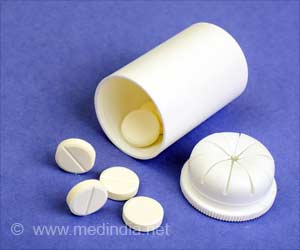A hormone secreted by cells throughout the body and known to play a role in cardiovascular disease is also critical for proper formation of the lymphatic system in mice.
A hormone secreted by cells throughout the body and known to play a role in cardiovascular disease and other cell functions is also critical for proper formation of the lymphatic system in mice, according to research from the University of North Carolina at Chapel Hill School of Medicine.
By targeting this hormone, called adrenomedullin, researchers may be able to treat the more than 100 million people worldwide affected by lymphedema, a condition that causes painful swelling in arms and legs.“Our research also may lead to therapies to prevent cancer cells from traveling through these lymphatic vessels to infiltrate other parts of the body,” said Kathleen M. Caron, senior study author and assistant professor of cell and molecular physiology and genetics at UNC.
Adrenomedullin is a powerful vascular peptide that can widen existing blood vessels and even promote the growth of new ones. But it also has many more functions, such as helping control metabolism, heart rate, thirst and appetite, stress response, antibacterial activity and nerve signal transmission.
The study, published Dec. 20, 2007, in the Journal of Clinical Investigation, demonstrates that this peptide is necessary for yet another function in our bodies: without it, our lymphatic system – an important part of the body's immune system – does not form normally. The lymphatic system includes lymph nodes and a network of thin tubes that transport fluid and immune cells that have leached out of tissues back into the circulatory system. These tubes branch, like blood vessels, into all the tissues of the body. Between two and three liters of the almost colorless fluid called lymph go through the lymphatic system in a day.
If this system fails to function properly, excess fluid collects and swells in tissue, causing lymphedema. In rare instances, the condition is inherited through genetic mutations. For two to three million cancer survivors, it comes as a consequence of early treatment, as the surgical removal of lymph nodes and radiation therapy creates damage to the lymphatic system that lasts a lifetime. But the most common cause, affecting up to 120 million people worldwide, is a parasitic infection.
“Lymphedema is a very serious problem,” Caron said. “Not only does it limit your mobility, but it can be quite painful and disfiguring.”
Advertisement
Caron and her team of researchers discovered the importance of this hormone in the formation of the lymphatic system after genetically manipulating mice so that they completely lacked either adrenomedullin or its related cell partners. They found that these mice looked a lot like other mice with impaired lymphangiogenesis. Careful examination showed that the lymph sacs that normally take up excess fluid from the tissues were much smaller than they should be, and the sacs without adrenomedullin were made up of fewer cells than normal.
Advertisement
“In cancer treatments of the future, patients suffering from these aggressive cancers could be identified early and could be treated with a drug to inhibit the growth of the lymph vessels that transport the cancerous cells, thus keeping the cancer in check,” Caron said.
Source-Eurekalert
SRM/M








